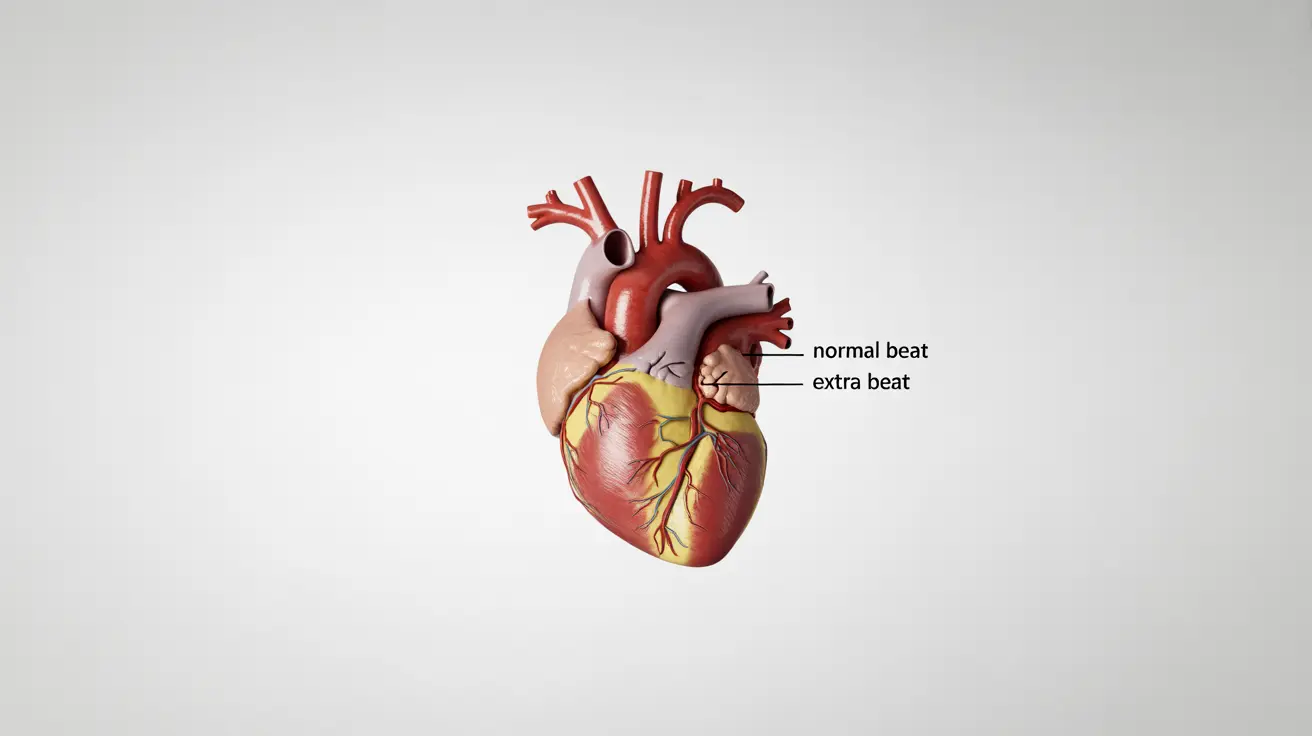Bigeminy is a type of heart rhythm irregularity where every normal heartbeat is followed by an extra beat, creating a distinctive pattern. This cardiac condition can range from a temporary occurrence to a more persistent issue requiring medical attention. While some people may experience noticeable symptoms, others might be completely unaware of this rhythm disturbance.
Understanding bigeminy is crucial for both patients and healthcare providers, as it can sometimes indicate underlying heart conditions that need attention. This comprehensive guide explores the key aspects of bigeminy, including its symptoms, causes, diagnosis, and treatment options.
Common Symptoms and Sensations
When experiencing bigeminy, individuals may notice various symptoms, though some people remain asymptomatic. Common symptoms include:
- Palpitations or a feeling of skipped heartbeats
- Fluttering sensation in the chest
- Irregular pulse
- Lightheadedness
- Shortness of breath
- Fatigue or weakness
- Chest discomfort
The sensation of bigeminy can vary among individuals, with some describing it as a "flip-flop" feeling in their chest, while others might experience more pronounced discomfort.
Understanding the Causes
Bigeminy can occur due to various factors and triggers, including:
Physiological Triggers
- Caffeine consumption
- Alcohol intake
- Nicotine use
- Stress and anxiety
- Lack of sleep
- Dehydration
Medical Conditions
Several underlying health conditions may contribute to bigeminy:
- Heart disease
- Electrolyte imbalances
- Medication side effects
- Thyroid disorders
- High blood pressure
- Heart valve problems
Diagnostic Procedures
Healthcare providers use several methods to diagnose bigeminy accurately:
Primary Diagnostic Tools
- Electrocardiogram (ECG)
- Holter monitor
- Event recorder
- Physical examination
- Medical history review
Additional Testing
Depending on the initial findings, doctors might recommend:
- Blood tests
- Echocardiogram
- Stress test
- Cardiac MRI
Treatment Approaches
The treatment for bigeminy varies based on its cause and severity:
Conservative Management
- Lifestyle modifications
- Trigger avoidance
- Stress reduction techniques
- Regular exercise (as approved by healthcare provider)
Medical Interventions
When necessary, medical treatments may include:
- Antiarrhythmic medications
- Beta-blockers
- Treatment of underlying conditions
- Cardiac procedures in severe cases
Prevention and Lifestyle Modifications
Several lifestyle changes can help manage and prevent bigeminy episodes:
- Limiting caffeine and alcohol intake
- Maintaining regular sleep patterns
- Managing stress through relaxation techniques
- Staying hydrated
- Following a heart-healthy diet
- Regular physical activity as approved by your doctor
- Avoiding known triggers
Frequently Asked Questions
What are the common symptoms of bigeminy and how does it feel when experiencing it?
Common symptoms include palpitations, a sensation of skipped heartbeats, chest fluttering, and occasionally lightheadedness. The feeling is often described as a "flip-flop" or irregular rhythm in the chest, though some people may not feel any symptoms at all.
What causes bigeminy and what lifestyle factors can trigger this heart rhythm disorder?
Bigeminy can be caused by various factors including caffeine, alcohol, stress, lack of sleep, and underlying heart conditions. Lifestyle triggers often include excessive stimulant consumption, dehydration, and high stress levels.
How is bigeminy diagnosed by doctors and what tests are typically used?
Doctors primarily diagnose bigeminy through ECG monitoring, Holter monitors, and event recorders. They may also conduct physical examinations, review medical history, and order additional tests like blood work or echocardiograms when necessary.
What treatment options are available for bigeminy, and when is medical intervention necessary?
Treatment options range from lifestyle modifications to medical interventions. Medical treatment becomes necessary when symptoms are severe, persistent, or when underlying heart conditions are present. Options include medications, treating underlying conditions, and in some cases, cardiac procedures.
Can lifestyle changes help prevent or reduce episodes of bigeminy, and what modifications are recommended?
Yes, lifestyle changes can significantly impact bigeminy episodes. Recommended modifications include reducing caffeine and alcohol intake, maintaining regular sleep patterns, managing stress, staying hydrated, and following a heart-healthy diet. Regular exercise, as approved by your healthcare provider, can also be beneficial.




